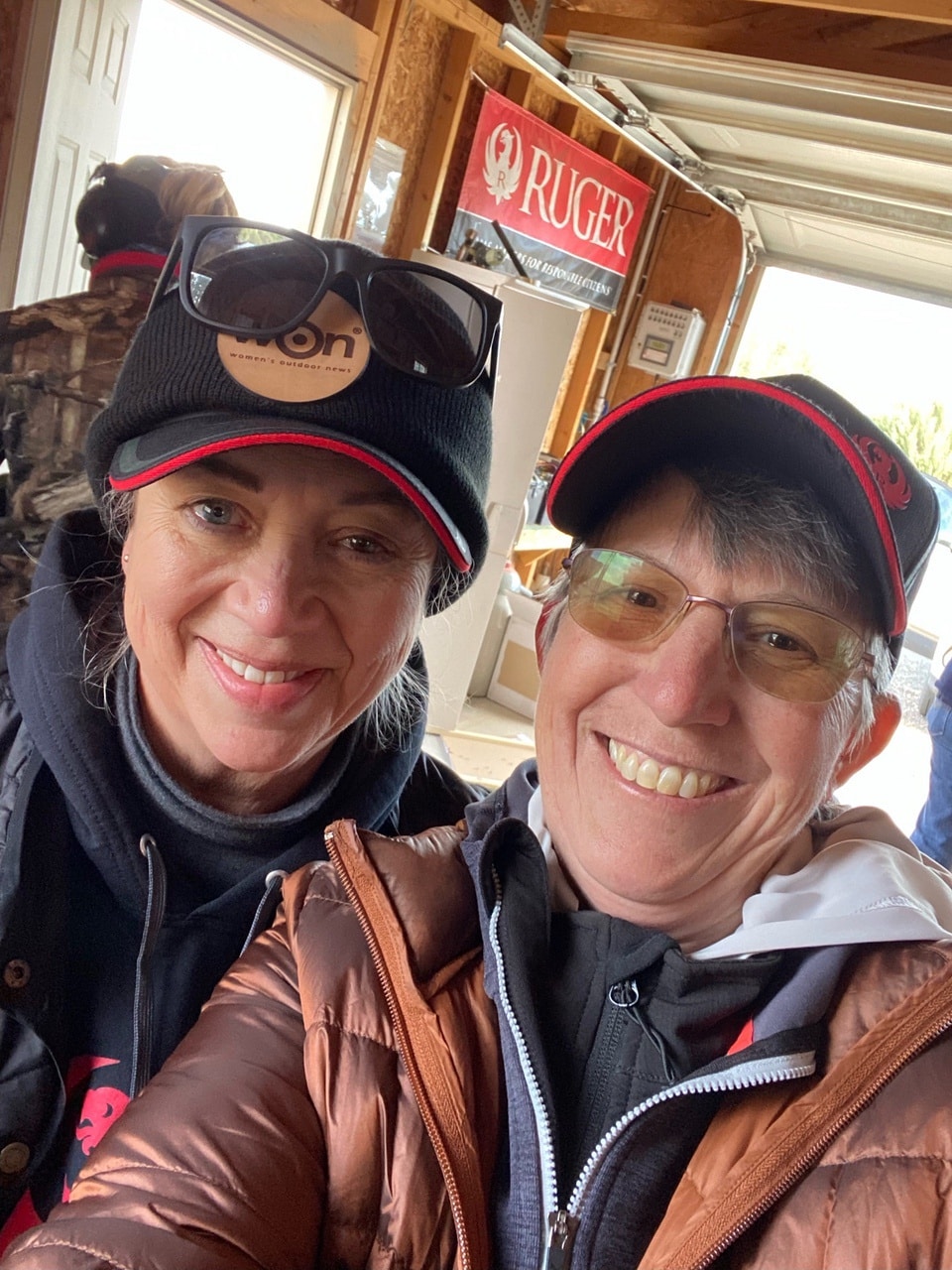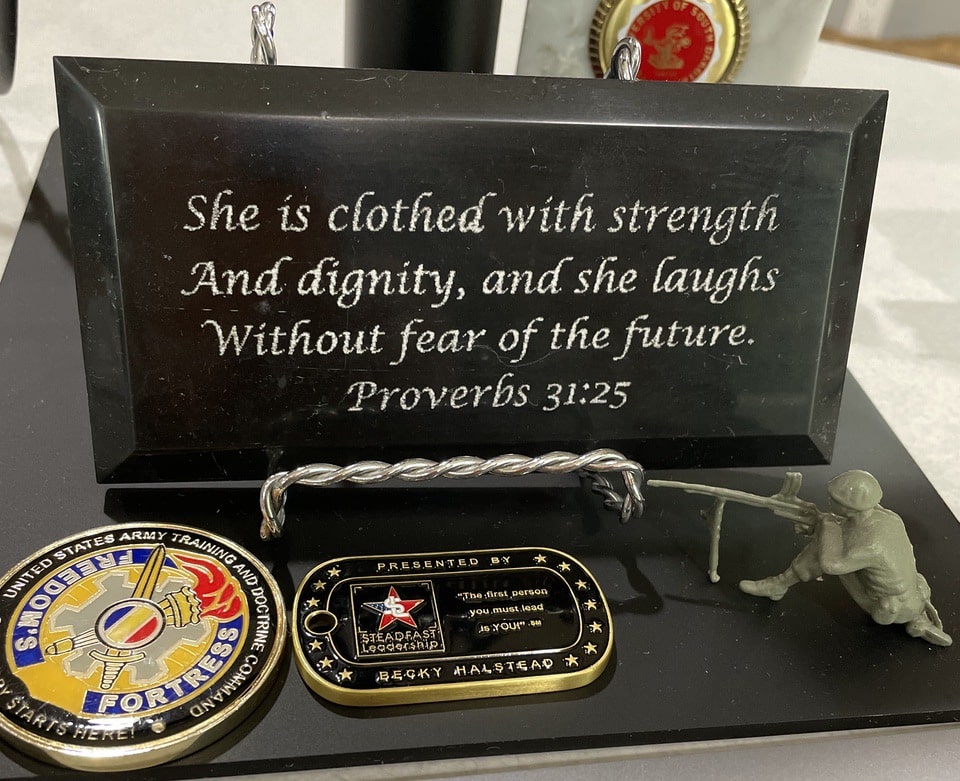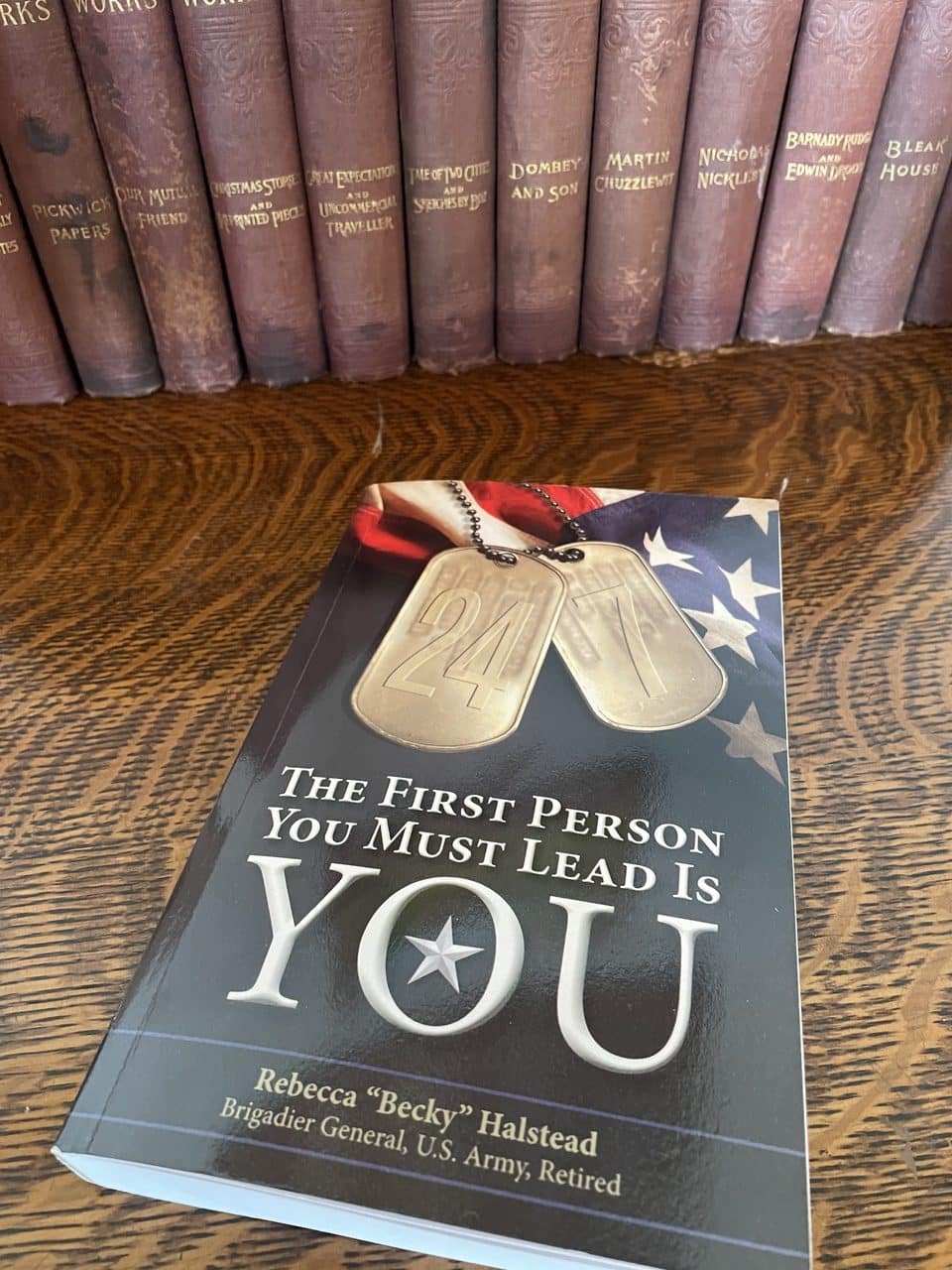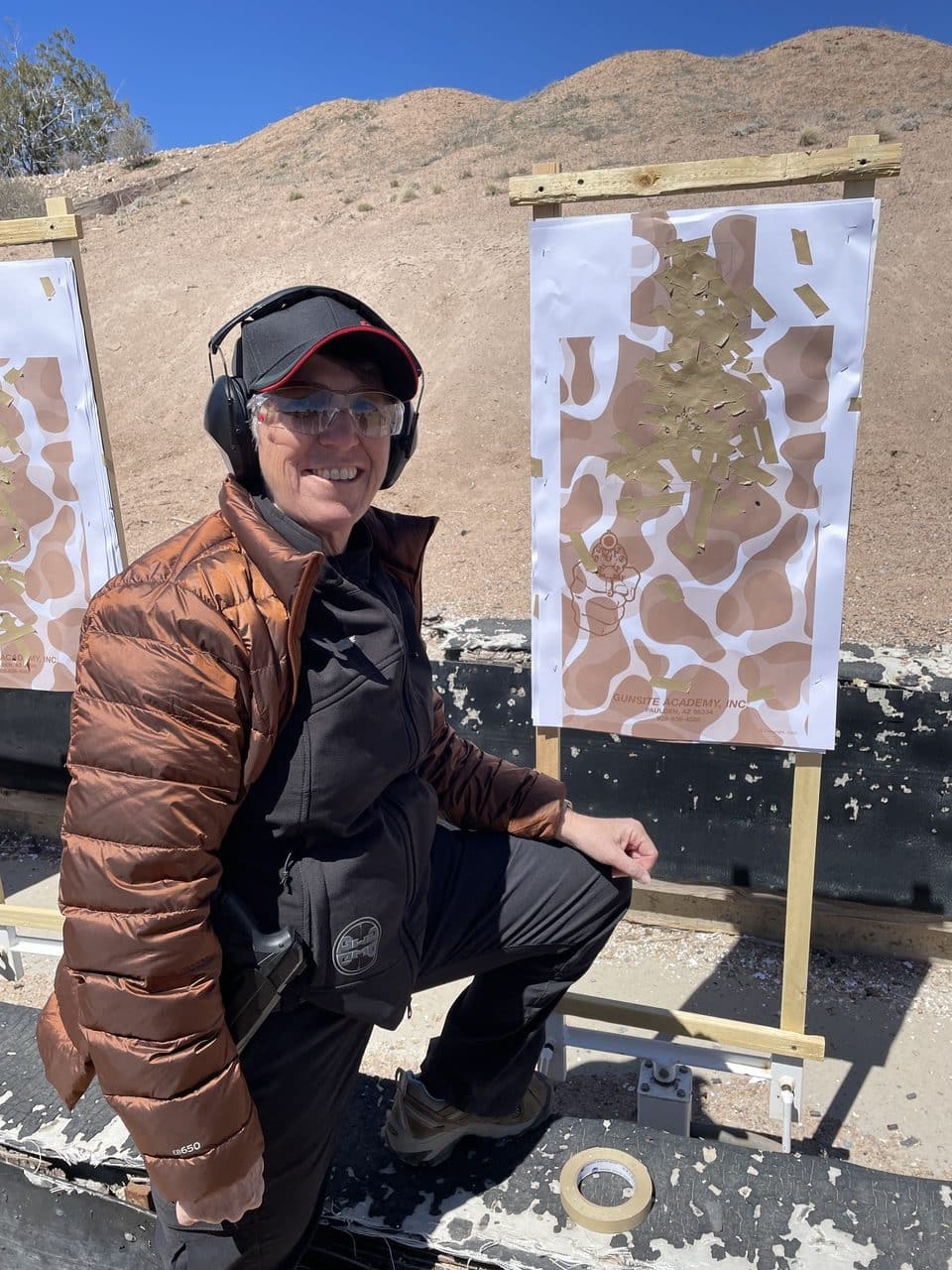I had the privilege of meeting Becky Halstead, Brig Gen. Ret., US Army, at Gunsite Academy earlier this year. Becky is the first female who graduated from West Point to earn the rank of Brigadier General. We spent a few days on the range together – and to be honest, I think we competed a little against each other on the shooting range because we are both by nature competitive. (In fact, she won the marksmanship challenge 50/45 and I won the quick-draw-on-the-target challenge by .2 of a second compared to her time.) We spent the last evening among newfound friends in Phoenix, at dinner, reflecting on the week and promising to keep in touch.

Imagine my surprise when, within a week, I received a gift in the mail from Becky. She sent me a signed copy of her book, “The First Person You Must Lead is YOU,” along with her own challenge coin, which not only has the title of her book inscribed on it, but also these words: steadfast leadership.

I’ve spent the last two weeks reading this book, no actually devouring it, and for this most hallowed national observance of Memorial Day, I want to describe what it meant to read one chapter in particular, the one that focuses on the death of a soldier.

But first, overall the book is divided into what she titles “Five Simple Truths” and “Thirty Leadership Principles for Daily Living and Leading.” Throughout the book, Becky applies the five simple truths to varied stories from her life that follow her from childhood to general-hood. Just to be clear, this is a woman who commanded in combat as the first female general in Iraq, which meant she was responsible for 20,000 soldiers and 5,000 civilians. Again, this was another first for our nation. Throughout the book, Becky writes about taking people by surprise, because her stature certainly does – at about 5 feet, 1 inch. She is fit, smart, witty and dynamic; all that rolled into one is a force to be aware of in any situation. She also writes about harassment, hazing and being overlooked and undervalued. And then, in the chapter featuring Leadership Principle 23, she chides herself for her own judgement regarding an honor guard comprised of solely women soldiers.
In 2007, Becky served as a Brigade Commander with the 10th Mountain Division in Ft. Drum, New York. It fell upon her to represent the Army at a fallen soldier’s funeral on a bitterly cold day in upstate New York. When she arrived to meet the designated honor guard at the soldier’s church, she observed that the sergeant in charge and the other two soldiers assigned to this duty were all women, and they were all petite. She wrote, “I made a quick judgement call to myself that this could be very problematic. … My mind went crazy. What if they are not strong enough to carry the casket, especially with the poor weather conditions? The uneven ground with ice and snow in the cemetery, along with the weight of the casket, could be catastrophic.”

She said her confidence rose as she spoke to the women soldiers about the duty that lay ahead of them. Since the family had decided that the soldier’s body in his casket would remain in the church overnight after the visitation, the honor guard decided to stay with the body in shifts to stand watch. She says she was “moved to tears” by this decision.
(I was moved to tears at this point in the story.)
It wasn’t long after that observation that Becky realized that the honor guard hadn’t brought winter uniforms, and that they would all be wearing their green, Class A polyester uniforms in the bitter cold. Furthermore, since they were honor guard, they had to wear ceremonial white cotton gloves, not black leather gloves. Becky had to follow suit, since she couldn’t be out of uniform dress code for the day. She wrote, “I thought to myself, we are going to freeze. Someone is certain to collapse from the cold or drop a weapon or slip. What can I do to focus them.”
As a result, she called them into a huddle and like a coach said, “Here’s what I want each of you to do. Every time your thoughts start to wander about how cold you are, I want you to divert those thoughts. Think only of our fallen comrade and his Family. I want you to start focusing with your heart, instead of your mind. Here’s why: when you use your heart, it begins to beat faster, and the blood pumps faster. Your heart will push warmth to your extremities, and I guarantee you, you will not freeze. This will help keep your mind off yourself. We are honoring a Soldier for his tremendous service to our nation and the ultimate sacrifice he gave with his life. We are also honoring his Family for their sacrifices. We can do this.”
And, they did.
Becky recalls, “Every movement was executed with precision and loving care. I could feel their measured and calculated steps as they fought not to slip on the ice and snow. … They laid our comrade to rest with honor and dignity.” She then explains about how military services are filled with emotion, and often an honor guard does not allow emotions to encompass them until well after the service. She recalls how she praised the honor guard, and then, told them about her earlier reservations and asked for their forgiveness.
Throughout the book, Becky shares raw and inspiring stories, and for this particular one, she took us out there to a rural graveyard on a cold winter’s day where a young soldier was laid to rest, mourned and revered by his family and on that day, his country. May we always remember the soldiers we have mourned – known and unknown to us – and the ultimate sacrifice they, and their families paid.
Publisher/Editor Barbara Baird is a freelance writer in hunting, shooting and outdoor markets. Her bylines are found at several top hunting and shooting publications. She also is a travel writer, and you can follow her at https://www.ozarkian.com. View all posts by Barbara Baird